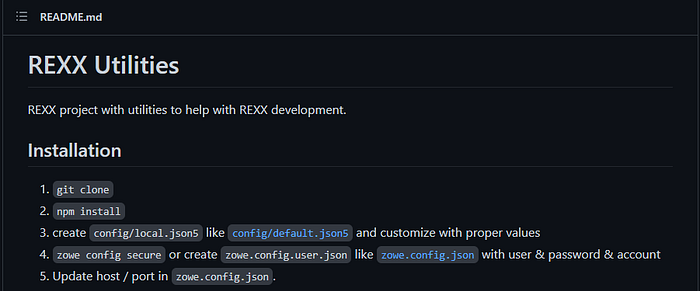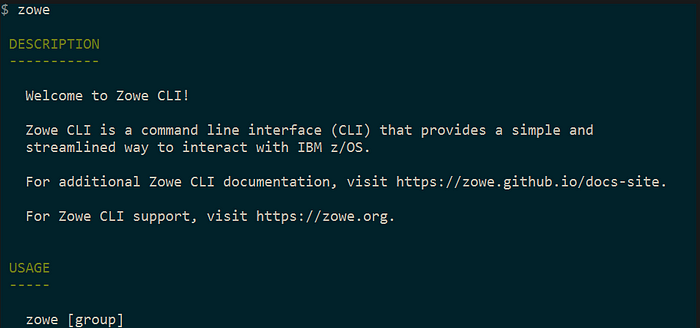Written by Dan Kelosky, Member of the Zowe Technical Community and R&D Engineer Software at Broadcom
Good friends share; great friends share Zowe CLI scripts.
— Anonymous
You can do a lot with Open Mainframe Project’s Zowe CLI, such as automating mainframe actions or integrating mainframe operations with some new tooling. However, many of us that build something new using Zowe CLI struggle finding ways to share what we’ve built with others.
Below are 6 ways that you can share custom Zowe CLI-based automation and tooling with others.
#1 Blog your code snippets
One option is to share code snippets and ideas in a blog. From there, your readers can customize and tailor the code snippets for similar, but non-exact scenarios after understanding the concepts that you explain.

This has a benefit of reaching many folks, but requires a significant time investment for others to actually make their own use following your pattern.
#2 Create a repo
A second option is the to create a public or internal repository for script samples that accomplish some mainframe use case:

This is a bit faster to use than blogging samples; however, it still requires a time investment to customize someone else’s unfamiliar automation.
#3 Creating a wrapper CLI
You can encapsulate some sharable logic in a custom CLI that invokes Zowe CLI commands or uses the Zowe SDKs:

This takes more work up front to genericize some actions and people you share it with can use it quickly. The downside is that you might be expected to help troubleshoot when things don’t go quite right.
#4 Create a Zowe CLI plugin
As an alternative to creating a custom CLI, you can write a plugin to Zowe CLI itself that can add new commands groups under the primary zowe command!

This is similar to the a custom CLI with an arguably more consistent end-user experience, but you will have to have a deeper understanding of Zowe CLI and its framework internals.
#5 Host parameterized scripts in Jenkins (or other) pipeline
You can place several Zowe CLI commands in a script file, invoke them with npm run …, and ultimately execute them from some shared [optionally parameterized] instance of Jenkins (or other CI tool):

With this, people can use your CI automation without installing software on their own machines but there likely won’t be a lot of flexibility on what this automation will do. It’s probably going to be limited to CI/CD use cases.
#6 Creating a server
Lastly, you can bundle Zowe CLI scripts or Zowe SDK calls into a web service that is callable from a UI or a CLI like cURL so that others can use your custom tooling from a centralized location:
This is perhaps the hardest to develop and manage but ultimately the easiest for others to adopt since users of your custom automation likely won’t need to install any software to use you scripts.
Summary
If you build something cool with Zowe CLI, please share, regardless of the format!
Learn more:
If you enjoyed this blog check out more Zowe blogs here. Or, ask a question and join the conversation on the Open Mainframe Project Slack Channel #zowe-api, #zowe-explorer-intellij, #zowe-explorer, #zowe-cli, #zowe-dev, #zowe-user, or #zowe-onboarding. If this is your first time using the Open Mainframe Slack Channel register here.